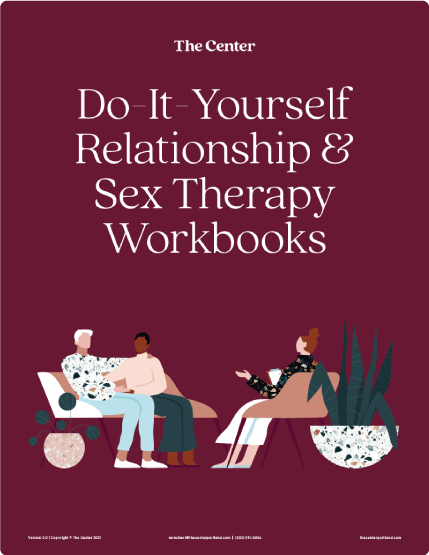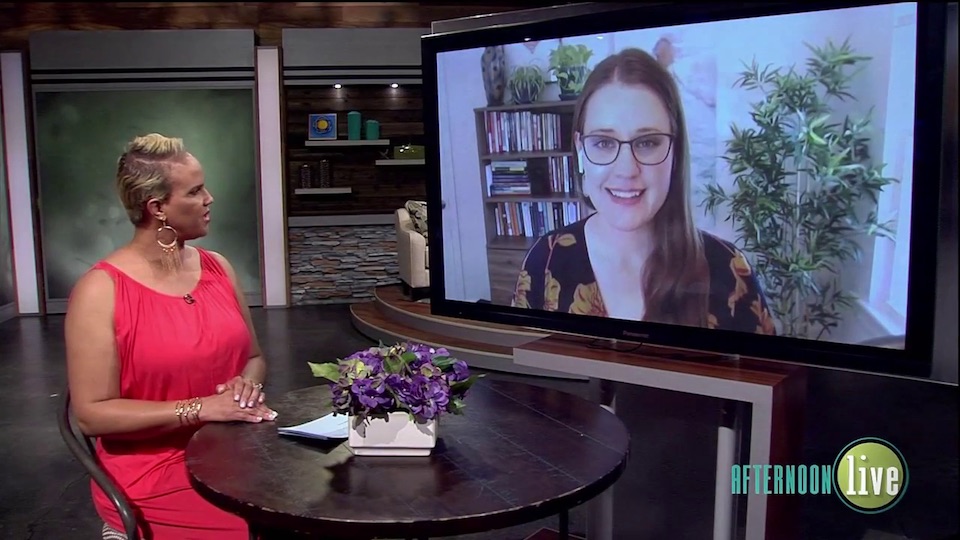It’s something you’ve probably heard a thousand times – all couples fight! <br> It’s true that fights are going to happen in a relationship, and those fights won’t always look measured and pretty, but there’s a difference between the unavoidable arguments that come with the territory and fights that just hurt the relationship – especially if disagreements frequently turn into bad fights.
When we’re angry – and underneath angry, maybe sad or scared or shocked – it can be very hard to express those feelings in ways that don’t end up being destructive. But fights don’t have to be this way – in fact, fights can be healthy for a relationship.
If you and your partner find that you tend to get into fights where you hit below the belt, this article is going to go over some ground rules that can help stop arguments from turning into verbal knock-down drag-outs, and how they work.
NOTE: If fights are ever physical, or you have noticed any of these common red flags, that’s a sign that these aren’t bad fights, this is abuse. These rules will NOT help stop verbal, emotional, or physical abuse. If you think you may be experiencing abuse, contact the National Domestic Violence Hotline at 1-800-799-7233 or go to their website thehotline.org for help.
Let’s review my top 6 Rules for Fair Fighting:
Rule 1: Have a Fight Safe Word
A fight safe word is exactly what it sounds like: a word that you can call when the fight feels out of hand to signal that you need to take a break. This is a sort of like an emergency eject button that you push once the fight is already out of control.
It is important to pick a word that you agree will mean a very specific thing – something along the lines of “This fight is only hurting us right now and we need to stop. Let’s take a 30-minute break and come back.” And then do that.
It’s important to agree to when you are going to come back, or else one person might not be able to actually let the break happen because they are afraid that they will never get the chance to be heard if they do not talk about it now. The issue there is, when we are in that escalated state, no one is really hearing anyone else no matter how loud we get.
Safe words can be especially helpful when used along with the other rules here. If you break any rules more than twice, that is a sign the fight is out of control and you might want to call your safe word. I recommend something really out there like “snorkel”, because that can surprise us out of the tunnel vision that sometimes happens with fights, but a word like “pause” can work just as well.
Rule 2: DO ask yourself what you are upset about
Sometimes we don’t even have time to even think before we are fighting. Taking time to check in with yourself about what is going on can give you a second to breathe through difficult feelings, and can create structure so the argument is less likely to derail.
Before you talk to your partner – or if a regular conversation has suddenly turned sour – pause for a moment (great time to use your safe word!) and try to answer these questions: What emotions am I feeling? What do I want my partner to understand? How can I express this to them?
Rule 3: DON’T use degrading language
This includes but is not limited to curse words, insults, put downs, or accusations – if it would sound nasty being said to you, don’t say it to your partner.
Mean language is an attempt to express your overwhelming negative feelings, while making your partner feel the same hurt you do. When we feel hurt, we become more defensive and the fight gets worse, not better.
When you have the urge to say something hurtful, this is a sign that the fight is out of hand and you need to take a break. This would be a good time to use your safe word!
Rule 4: DO use “I Statements” rather than “You Messages”
These two might seem straightforward, but they can be tricky. “I feel like you always take me for granted!” is still a You Message, but with “I feel like” tacked on the front. Instead, try “I felt very alone when you worked late all week.”
It’s important in fights to take responsibility for your feelings. I Statements help us do this because we are owning our feelings, showing that even though our partner’s actions impacted us, we are not blaming them for how we feel.
You Messages tend to escalate fights because they come off as accusations – when we get hit with a You Message, our instinct is to push back! Now we are in defense/attack mode, and the fight gets worse.
Rule 5: DO take turns
And listen when your partner is talking. This is the hardest rule, but this is the one that takes us from “not fighting” to resolving conflict.
When it seems like our partner is not hearing us, the last thing we want to do is show them we are hearing them, but this is exactly what deescalates the fight. Rather than focusing on what you will say next, listen to what they are saying, and try to paraphrase back their point as you understand it.
This is very difficult, and it can sometimes take professional help to practice this tool.
Rule 6: DON’T yell or stonewall
Stonewalling is when you refuse to say anything to your partner and completely retreat into your shell. Yelling and stonewalling are signs that we are overwhelmed and just trying to protect ourselves the best we can – they are literally the fight and freeze part of fight, flight, or freeze.
Yelling only escalates the fight further, and can be intimidating and hurtful to our partner. Stonewalling can also be scary and hurtful to our partner – they have no idea what is going on or how to reach us.
If you have reached the point of yelling or stonewalling, it is time to use the fight safe word.
The point of these rules is to stop behaviors that tend to escalate things towards a fight and tend to make us feel defensive or hurt.
It is also important that both partners agree to follow these rules – that way, when it comes to the hard parts like listening to each other, we know that both of us will try.
I don’t want to sugarcoat it for you – if you have a history of explosive fights, these rules are going to be hard to follow. If you find that you’re having trouble following these rules, or if you read these and thought “We’d never be able to do that!”, I would be happy to help guide you on using these rules and other skills to transform the way you communicate with your partner.
Are you tired of fighting with your partner?
Nicole is ready to help you level-up your communication. Check out Nicole’s profile here and reach out to schedule your free 30-minute consultation here.







